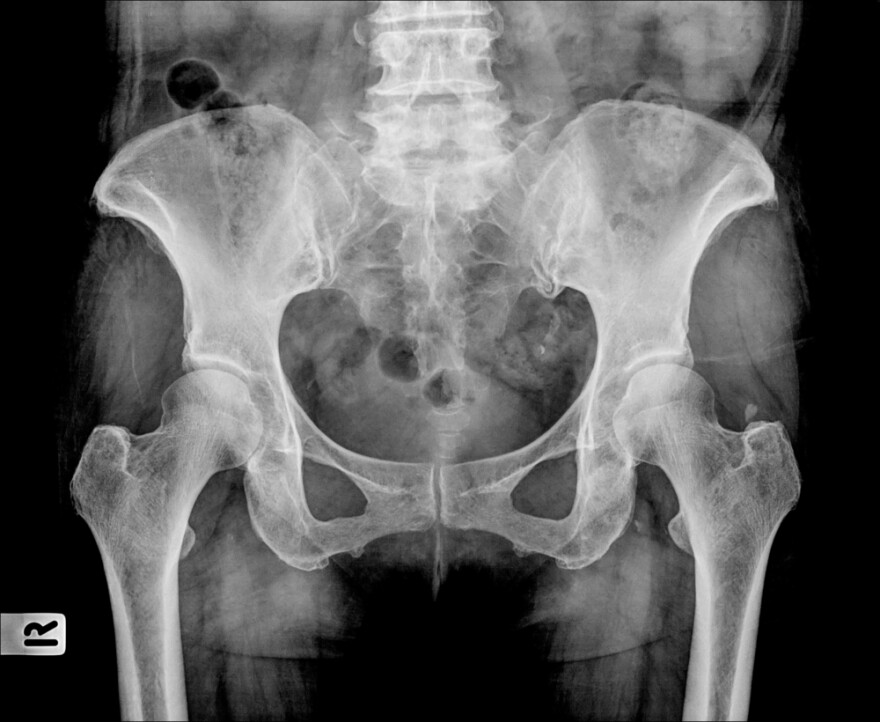There are more than three million cases of urinary tract infections in the U.S. each year. Antibiotics are the usual treatment. However, some believe cranberry juice can help.
KERA's Sam Baker spoke with Dr. Maude Carmel, urologist at Parkland Health & Hospital System and assistant professor of urology at UT Southwestern Medical Center about whether there's some truth to the idea.
Interview Highlights:
What is the urinary tract? “The tract that involves the kidney, the uterus or the tube that brings urine from kidney down to the bladder and the urethra.”
What causes an infection in the tract? “There’s going to be introduction of a bacteria. Usually, the bacteria’s going to come from the rectum or the outside, and climb up the urethra and infect the bladder. It’s going to be mostly women who are infected by a urinary tract infection compared to men. It’s the anatomy, mostly. The urethra’s much shorter in a woman than in a man. It’s also the urethra’s much closer to the rectum in a woman than in a man. This is why younger girls, sexually active women and post-menopausal women are of much higher risk of urinary tract infections than men. But as men get older prostate problems, other diseases can make them prone to urinary tract infections as well.”
Symptoms “The main symptom is going to be a burning sensation with urination. Increased frequency, they have to go to the bathroom more frequently than usual. They have to rush more to get to the bathroom. Some people could also have pain in the lower pelvic area. People also describe some flank pain. Blood in the urine also is a sign of urinary tract infection. Once people develop a fever, that’s when we call that an infection of the kidney. This is more serious, but typically an infection of the bladder should not have fever.”
How serious is the infection? “Usually, it’s pretty simple. The symptoms will go away pretty quickly with the start of antibiotics. It’s only in a small percentage that the infection will progress into something more serious and affect the kidneys.”
What about the common belief of cranberry juice as a treatment? “There is some evidence that there’s a product in the cranberry that could prevent bladder infection, but it’s not a treatment. The amount of that product in the cranberry juice is so diluted that it’s almost inexistent, and there’s so much sugar in the cranberry juice that it doesn’t do anything. Usually what I tell a patient is to take cranberry capsules you can buy at the grocery store or the natural products store or the pharmacy. These are going to have the concentrated product that we want. We think this product coats the lining of the bladder, preventing the bacteria to adhere to the bladder wall, preventing infection.”
Are there alternative methods that may work? “We think about 30 percent of bladder infections when they’re pretty small can be treated by increased hydration and frequent urination. But if the symptoms persist after 24, 48 hours, you should seek medical evaluation to see if you need antibiotics.”
Can you prevent UTIs? “Be well hydrated. Go to the bathroom frequently, at least every four to six hours. Avoid constipation. Constipation is a big risk factor for urinary tract infection. In some women prone to urinary tract infection, we can recommend cranberry extract pills. Vitamin C also can prevent bladder infection. It acidifies the urine, preventing bacteria from growing in the urine. So they can take one tablet of vitamin C at night before that go to bed at night to help prevent infection.”
For more information:








